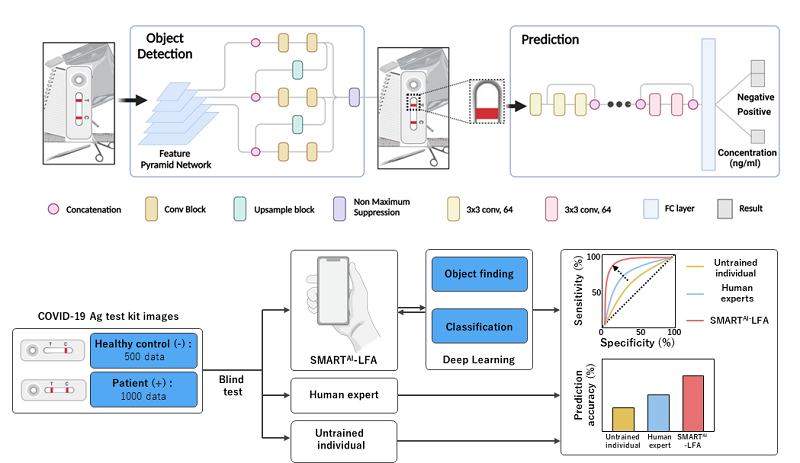Smartphone-based AI for High-Sensitivity Virus Diagnosis in the Field
- admin
- 2023-05-15
- 602
-Developed a proprietary deep learning algorithm-based high-sensitivity on-site diagnostic technology using smartphones-
-Blind evaluation results for COVID-19 show a significant increase in sensitivity from 72% for the general public to 100%-
-The sensitivity for difficult-to-diagnose infections in the early stages significantly increased from 51% for the general public to 91% when AI was applied-
-Ensured versatility in diagnosis using smartphones or rapid kits that are widely available on the market-
-Presented a new paradigm for on-site diagnosis that can judge and suggest the early diagnosis of new and variant viruses, the progress of diseases, and the need for isolation-
This technology has been transferred to Kels Co., Ltd., and commercialization is planned through approval and certification processes such as app/algorithm optimization, and the U.S. Food and Drug Administration (FDA) and the Korean Food and Drug Administration (KFDA). This research was supported by the Bio-Medical Technology Development Program of the National Research Foundation of Korea (No. 2021M3E5E3080743) and published in Nature Communications, a top-tier journal published by Nature Portfolio (IF: 17.69).
Web link: https://www.nature.com/articles/s41467-023-38104-5
 ?
?
<From left to right, the research team consists of Professor Jeonghoon Lee (Kwangwoon University), Seungmin Lee (PhD candidate), Sunmok Kim (PhD candidate), Professor Daesung Yoon (Korea University), Professor Kiback Lee (Kwangwoon University), and Professor Yongkyung Yoo (Catholic Kwandong University)>
 ?
?